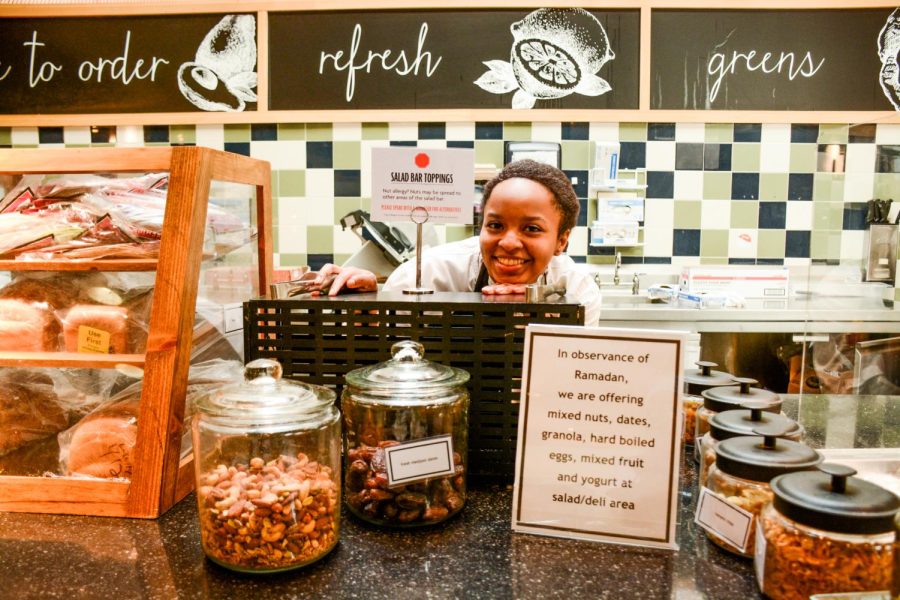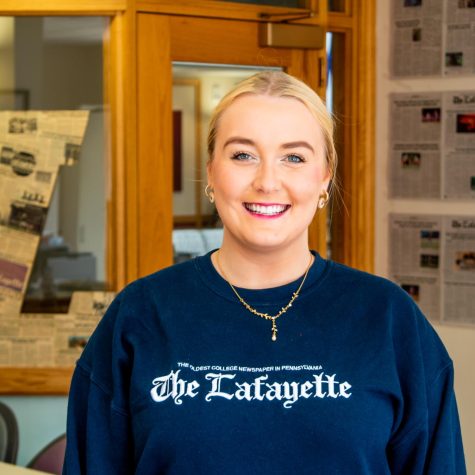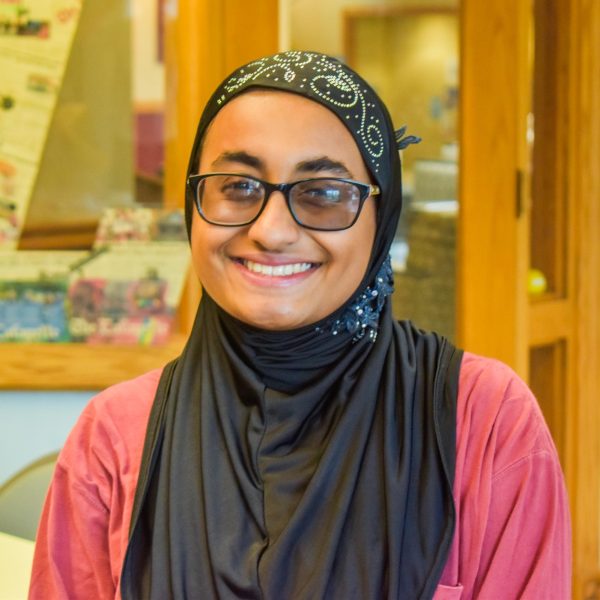Since the evening of March 22, a number of Muslim students have abstained from food and water from dawn to sunset while observing Ramadan. Muslim students say that while there have been vast improvements in how the fast has been accommodated by the college over the years, challenges remain.
“I know it’s difficult, with people working there,” Mahdia Azizi ’23, president of the Muslim Students’ Association (MSA), said. “We need more dining hall hours, because … Ramadan changes every year [by] 10 days.” When Ramadan falls closer to summer, students break their fasts later in the evening, limiting their food options even more.
Fasting during Ramadan is one of the five pillars of Islam and it is recommended that Muslims eat a pre-fast meal, or suhur, before sunrise. After sundown, the daily fast is broken with iftar, a meal which often begins with dates served with water and milk, and is followed by dinner.
However, this schedule is not necessarily compatible with the opening times of the college’s dining halls.
The earliest-opening breakfast location is Marquis Dining Hall which opens at 7 a.m. On March 23 of this year, dawn in Easton began at around 6:33 a.m.
Last year, Azizi began to seek out accommodations specifically for Muslim students on campus celebrating Ramadan, as none existed at the time. Chaplain Alexandra Hendrickson, director of Religious and Spiritual Life, put her in touch with Chris Brown, the General Manager of Dining Services.
According to Azizi, Brown was “generous” in his response.
Accommodations in the past two years have included dates being served at Upper Farinon Dining Hall, enabling students to more conveniently break their fasts.
Azizi mentioned that she had requested that granola, yogurt and certain dried foods be present in the dining halls, a request which the school was able to accommodate. During the first week, there was a sign that noted this food was available for students observing Ramadan.
“Whatever I have requested from them … they have given,” Azizi said.
In terms of the dining halls’ hours, Azizi said, “for breakfast, we can get food for pick up at dinner time because we wake up early.”
For the post-sunset meal, Azizi said that there are often fewer options.
“It’s a lot of Lower and Upper at this point, because Marquis closes by eight, and we break our fast around 7:30 to 7:35,” Azizi said. “We just have limited options of dining services in general.”
In an email, Brown wrote that students “have the option to take food out via our ECO to-go box program in Upper Farinon and Marquis Dining hall, to enjoy before or after the fasting period, as well as an array of grab and go items and meals to go from Gilbert’s.”
Brown also reaffirmed Dining Services’ willingness to make dietary accommodations.
“Please let us know if there are food choices that we can offer during Ramadan in the future,” Brown wrote.
Azizi mentioned that Muslim students face dining issues throughout the year, and not just during Ramadan.
“One problem … throughout the year we have limited options of Halal food,” Azizi said.
Chicken is the only halal meat served on campus, though MSA was in touch with Dining Services last year to request halal beef.
For a possible alternative, Azizi said that she has spoken to Hendrickson about the possibility of prorating the cost of meal plans for Muslim students whilst they observe Ramadan because during the period, “you’re not making use of it.”
Despite the difficulties, Azizi said that the improvements from the college have been significant.
“I’ll say for sure it has improved from my sophomore year,” Azizi said.
























































































































